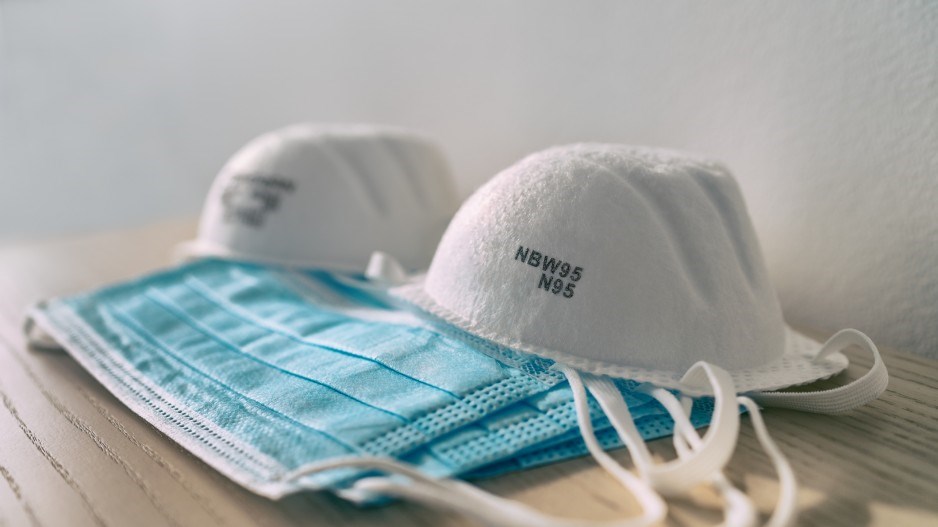Chinese authorities have again added non-tariff barriers to the export of medical PPEs abroad, possibly making such goods less accessible and more expensive for Canadian medical professionals in need.
Canadian importers trying to import Chinese PPEs (such as masks, ventilators and protective clothing) are now required to join the exporting Chinese company to sign a declaration that the products they are buying from China are “compliant with relevant quality standards and safety requirements” of the country where the products will be used.
In a release issued on Chinese Ministry of Commerce website, ministry director-general of foreign trade Li Xinggan said the move came into effect on April 26 as part of an effort to “ensure the standard of quality” of the exported PPEs, as well as “the responsibility of both sides” in making sure the products are of high-quality.
“We hope that, through this set of targetted policy directives, we can further improve the quality of products [we] export to fight the pandemic while also proactively guard against related quality-control risks,” Li said in the statement. “[These requirements] also help responsible nations further demonstrate their assumption [of such risks] and the protection of public trust in Chinese manufacturing.”
In the joint declaration document obtained by Business in Vancouver, an importer - such as a Canadian firm looking to bring the goods to Canada - is now required to “guarantee the product quality standards… are compliant with the quality requirements of the importing country/region.” The document also noted that “the [Chinese] exporter or producer is not liable for any losses caused by the inappropriate use, maintenance or keeping of the face masks by the importer or any third party.”
Essentially, one Canadian importing consultant said, Beijing is now making it “caveat emptor” - the principle that the buyer alone is responsible for checking the quality of goods before making a purchase - to buy Chinese PPEs.
“The Chinese want to preserve their reputation,” said Omar Allam, founder/CEO of the Allam Advisory Group and an import/export consultant actively working with Canadian companies to bring in much-needed PPE supplies to a strained domestic health sector. “… It’s a way for Beijing to act with impunity - taking no responsibility for faulty or counterfeit PPE products that are supposed to meet Chinese and international standards.”
China had earlier this year placed restrictions on PPE exports by limiting the number of Chinese companies that are allowed to export. The move resulted in significant strains on Canadian importers’ ability to bring in PPEs from China - the world’s largest producer of such goods.
These new rules, Allam said, amounted to a “moving of the goal posts” once again and will almost definitely result in more delays due to red tape, as well as increased shipping prices because of the delays.
“These rules are excessive with administrative burdens and time constraints,” he said. “… Anytime new non-tariff measures are added - even in the most efficient way - it slows trade as it adds additional steps to the process. [It also] creates an opportunity to stop cargo movement.”
There have been a number of cases of recent Chinese-exported PPEs failing testing in several foreign markets, including an announcement on April 23 by Canadian public health authorities that an order of 1 million KN95 respirators from China failed federal COVID-19 standards for front-line health workers.
Nonetheless, the global fight agains COVID has meant that PPEs from China - which account for about half of the world’s supply - remain in high demand as countries scramble to secure supplies. Canadian prime minister Justin Trudeau said previously that - while Canada is ramping up domestic production of PPEs - the importation of such goods remains crucial.
“My job right now is to make sure that Canadians get the best support, the best protection, and are able to get through this as best we possibly can,” Trudeau said on April 17. “That means getting the equipment that we need; that means ensuring that the collaboration on the international stage is done properly.”
Allam noted that while domestic suppliers are ramping up as fast as they can, he is worried that things like inexperience could affect the quality of PPEs initially delivered by Canadian manufacturers.
“We need to be smart and creative in how we scale-up local manufacturing,” he said. “… We have strong manufacturers and very technically/financially capable companies, [but] if Canadian PPE ventures can’t build a proactive supply chain of raw materials, their business model will be flawed - no matter how good your technology is or how good your business plan looks on paper."




